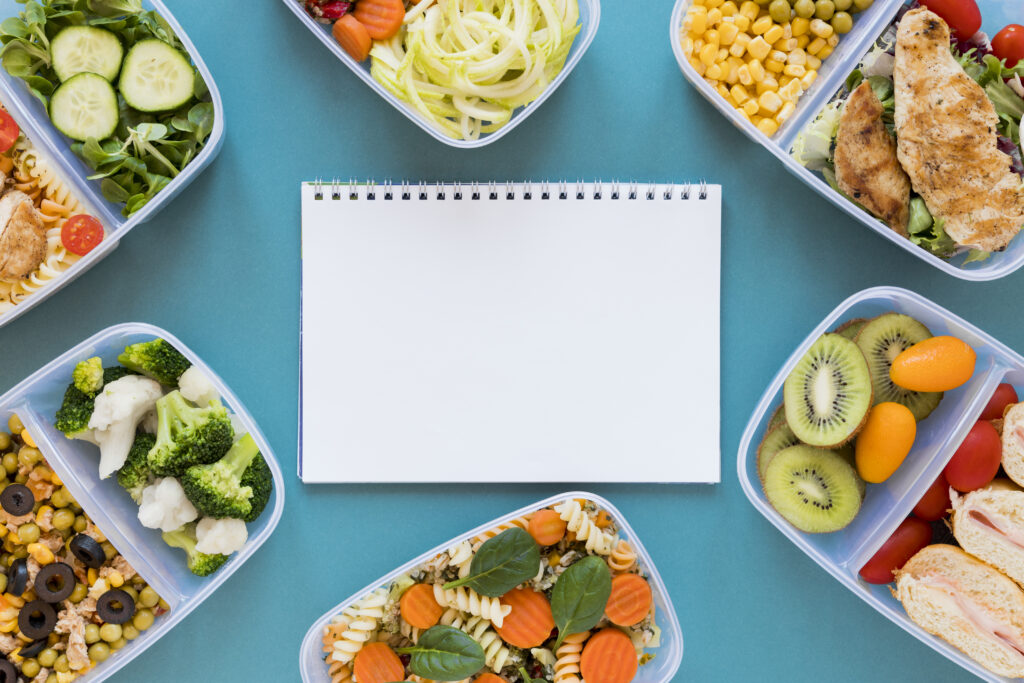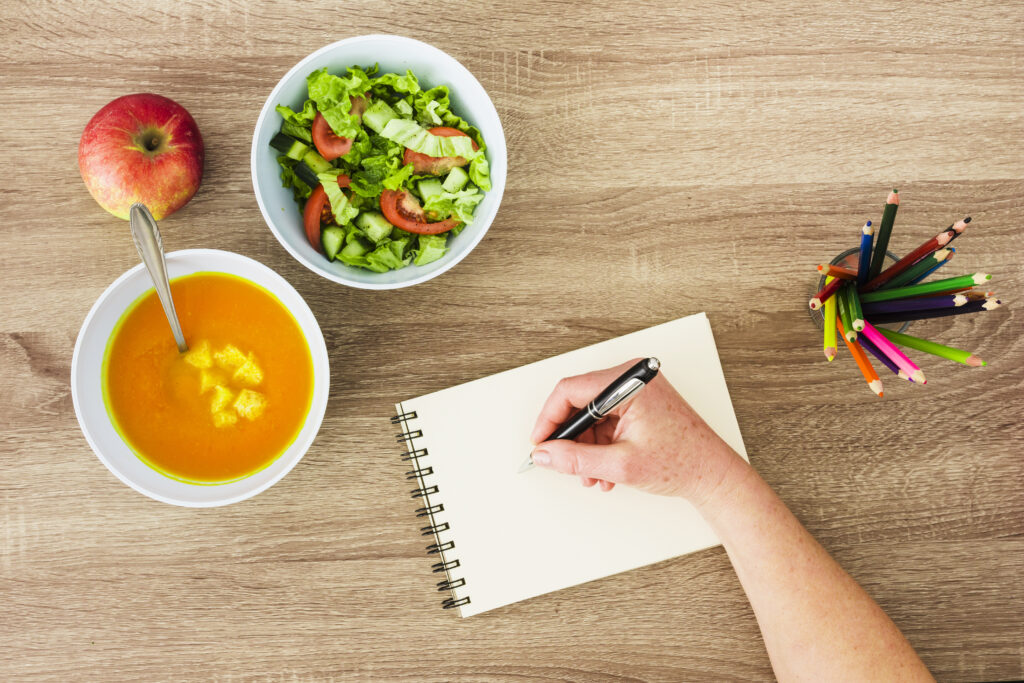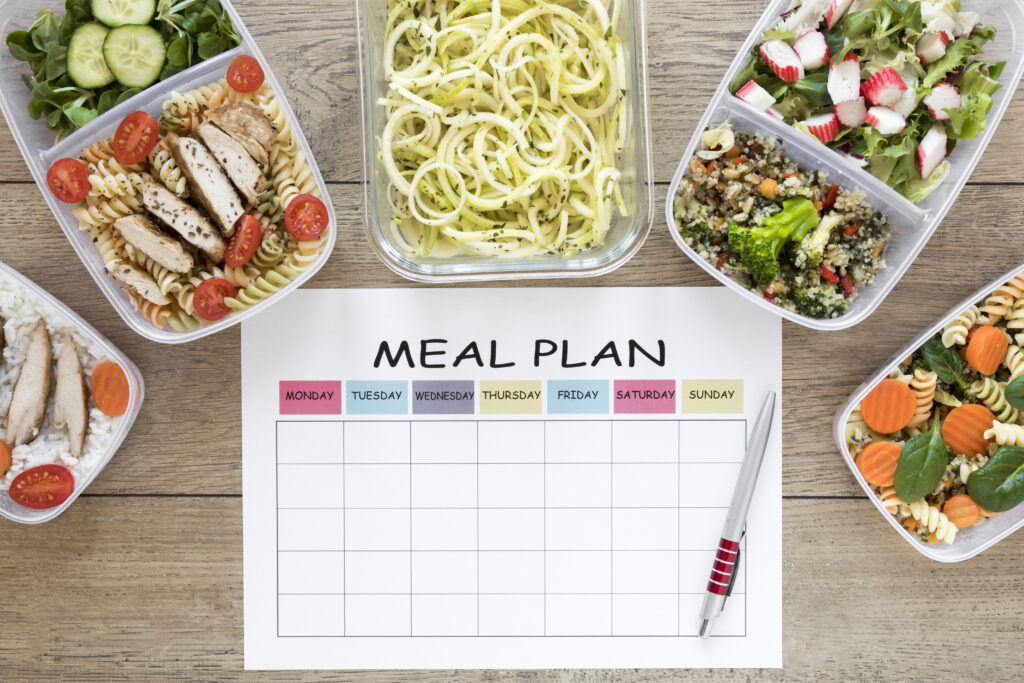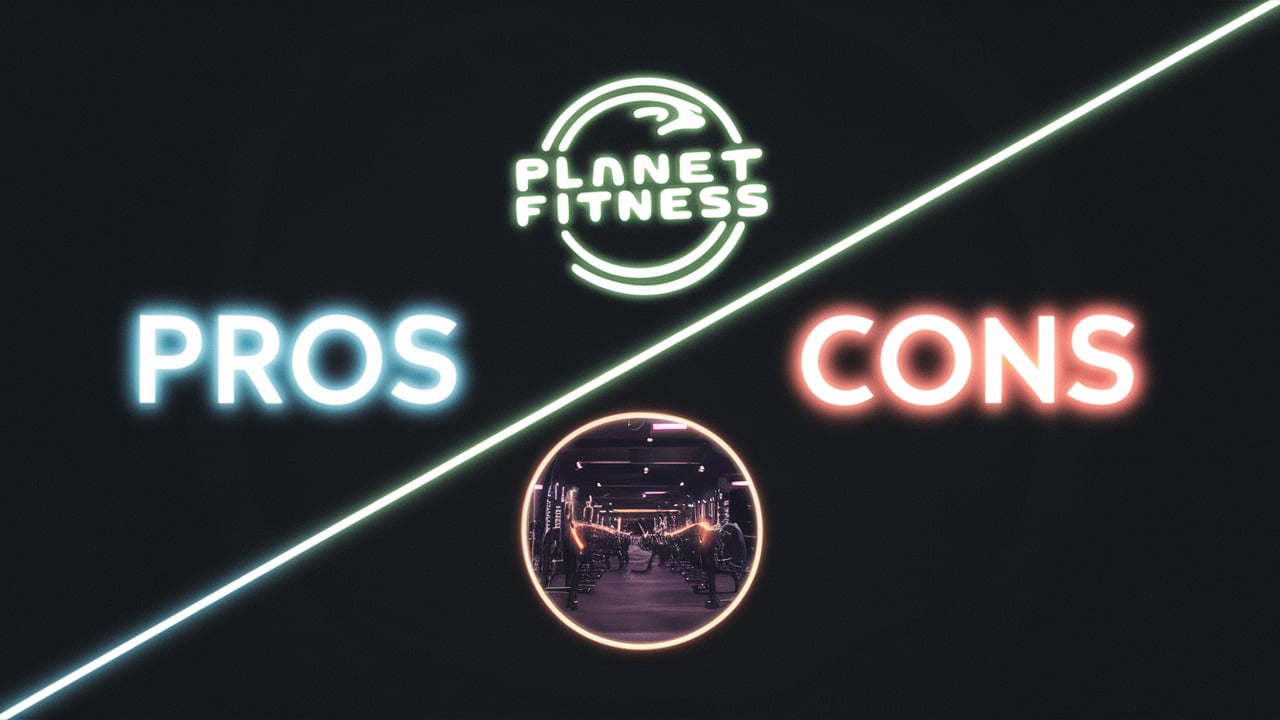Effortless Weekly Meal Prep Ideas: Save Time and Eat Healthy!

In today’s fast-paced world, finding time to prepare healthy meals can feel like an uphill battle. The constant hustle and bustle often lead to rushed dinners, takeout, or unhealthy snacks. But what if you could reclaim your time, eat better, and save money, all with a simple strategy? Enter weekly meal prep! This guide will walk you through the ins and outs of weekly meal planning, offering tips, recipes, and motivation to transform your approach to eating.
Table of Contents
Introduction to Weekly Meal Prep
Imagine stepping into your kitchen at the start of the week, opening your fridge, and seeing it stocked with delicious, ready-to-eat meals. No more stress about what to cook each day or succumbing to the temptation of fast food. With weekly meal prep, you can make this dream a reality!
Why Meal Prep?
The benefits of weekly meal prep extend beyond convenience. By planning your meals in advance, you can:
- Save Time: Preparing meals ahead reduces daily cooking time significantly.
- Eat Healthier: You control the ingredients, making it easier to stick to a balanced diet.
- Save Money: Buying in bulk and minimizing waste can lower your grocery bills.
- Reduce Food Waste: Planning helps ensure that all ingredients are used effectively.
In this article, we’ll explore how to create your weekly meal prep routine, including recipe ideas, tips for efficient cooking, and strategies to stay motivated.
Section 1: Planning Your Week
Assess Your Schedule
The first step in effective weekly meal prep is understanding your schedule. How many meals do you need to prepare? Consider the following:
- Work hours and commitments
- Family schedules
- Social events or outings
- Days you might want to eat out or order in
Once you have a clear picture, you can tailor your weekly meal prep to fit your lifestyle.
Choosing Recipes
Selecting recipes is crucial for successful weekly meal prep. Here are some tips:
- Opt for Versatile Ingredients: Choose recipes that use similar ingredients to minimize waste. For example, if you buy spinach, plan to use it in salads, smoothies, and omelets.
- Balance Your Meals: Aim for a mix of proteins, whole grains, and vegetables. This balance not only provides essential nutrients but also keeps your meals interesting.
- Consider Your Cooking Skills: Pick recipes that match your skill level. If you’re a beginner, start with simpler dishes and gradually try more complex ones.
Grocery List Essentials
Once you’ve chosen your recipes, it’s time to create a grocery list. Here’s how to do it:
- Organize by Category: Group items into categories such as fruits, vegetables, proteins, grains, and pantry staples. This makes shopping quicker and more efficient.
- Stick to the List: Resist the temptation to buy items that aren’t on your list. This helps keep your grocery bills in check and reduces impulse buys.
Section 2: Meal Prep Basics
Essential Tools and Containers
To streamline your weekly meal prep, invest in a few essential tools and containers:
- Cutting Board and Knives: A sturdy cutting board and sharp knives are vital for efficient chopping.
- Storage Containers: Choose BPA-free containers in various sizes for storing individual portions. Glass containers are a great option as they are microwave-safe and reduce plastic waste.
- Measuring Cups and Spoons: These tools are essential for accurately portioning ingredients and following recipes.
Food Safety Tips
Safety is paramount when preparing meals in advance. Keep these tips in mind for your weekly meal prep:
- Keep It Clean: Wash your hands, utensils, and surfaces before and after handling food.
- Store Properly: Make sure to refrigerate perishable items promptly. Use airtight containers to maintain freshness.
- Reheat Safely: Ensure food is reheated to a safe temperature (165°F or 74°C) to kill any bacteria.
Section 3: Weekly Meal Prep Ideas

Now, let’s dive into some exciting weekly meal prep ideas that will keep your taste buds happy and your body nourished.
Breakfast Options
Starting your day with a healthy breakfast sets the tone for the rest of your meals. Here are some weekly meal prep ideas for breakfast:
- Overnight Oats: Combine rolled oats, milk (or a dairy-free alternative), yogurt, and your favorite toppings like fruits, nuts, or seeds. Portion them into jars for grab-and-go convenience.
- Egg Muffins: Whisk eggs with diced vegetables, cheese, and cooked meats. Pour the mixture into a muffin tin and bake. These protein-packed muffins are perfect for busy mornings.
- Smoothie Packs: Pre-portion your smoothie ingredients into freezer bags. In the morning, just blend with your choice of liquid for a quick, nutritious breakfast.
Lunch Ideas
Lunch is often the most overlooked meal when it comes to weekly meal prep. Here are some ideas to keep your lunches exciting:
- Mason Jar Salads: Layer your favorite salad ingredients in a jar, starting with dressing on the bottom and greens on top. Shake before eating for a fresh, crisp salad.
- Quinoa Bowls: Cook a large batch of quinoa and top it with roasted vegetables, grilled chicken, or chickpeas. Drizzle with a tasty dressing for a satisfying meal.
- Wraps and Sandwiches: Use whole grain wraps or bread filled with lean proteins, plenty of veggies, and a flavorful spread like hummus or avocado.
Dinner Inspirations
Dinner can be made effortless with these weekly meal prep ideas:
- One-Pot Meals: Create hearty meals like stir-fries or casseroles that can be made in one pot. These dishes often taste even better the next day!
- Sheet Pan Dinners: Roast proteins and vegetables on a single sheet pan. For example, chicken thighs with broccoli and sweet potatoes seasoned with your favorite spices make for a nutritious meal.
- Slow Cooker Recipes: Set it and forget it! Prepare soups, stews, or shredded meats that can cook while you’re at work, providing you with a comforting dinner when you return home.
Snack Ideas
Don’t forget about snacks! Healthy snacks can help you avoid unhealthy temptations between meals. Here are some ideas for your weekly meal prep:
- Energy Balls or Bars: Make a batch of no-bake energy bites using oats, nut butter, and honey. These are perfect for a quick energy boost.
- Veggie Packs: Cut up a variety of veggies and pair them with hummus or a yogurt dip for a crunchy, satisfying snack.
- Yogurt Parfaits: Layer yogurt with granola and fresh fruits in mason jars for a delightful and healthy snack option.
Section 4: Batch Cooking Techniques
Cooking in Bulk
One of the most effective strategies for weekly meal prep is cooking in bulk. Here’s how to do it effectively:
- Choose Staples: Cook large portions of grains, proteins, and vegetables that can be used in multiple meals throughout the week. For example, prepare a big batch of brown rice and roast a variety of veggies to pair with different proteins.
- Portion Control: Once cooked, divide your meals into single-serving containers. This way, you have a balanced meal ready to go whenever you need it.
Freezing Meals
Freezing is a fantastic way to extend the life of your weekly meal prep. Here’s how to do it right:
- Choose Freezer-Friendly Foods: Soups, stews, and casseroles typically freeze well. Consider preparing extra portions of these meals for freezing.
- Labeling: Always label your containers with the name and date. This will help you keep track of what’s in your freezer and when to use it.
- Reheating Tips: When reheating frozen meals, do so slowly to ensure even heating. Microwaving can sometimes lead to uneven temperatures, so consider using an oven when possible.
Section 5: Staying Motivated

Mixing It Up
One of the biggest challenges of weekly meal prep is avoiding boredom. Here are some tips to keep things fresh and exciting:
- Theme Nights: Designate specific nights for certain cuisines, like Taco Tuesday or Italian Night, to keep your meals varied and fun.
- Experiment with New Recipes: Challenge yourself to try a new recipe each week. This can help you discover new favorites and keep your meal rotations dynamic.
Tracking Your Progress
Maintaining a meal journal can be an excellent way to stay on track with your weekly meal prep. Consider these tips:
- Record What You Like: Jot down notes on which meals you enjoyed and which didn’t resonate as much. This will guide your future meal prep decisions.
- Reflect on Your Goals: Use your journal to remind yourself of your health and wellness goals, helping you stay focused and motivated.
Conclusion
With a little planning and creativity, weekly meal prep can transform your approach to food, making it easier to eat healthy and save time. By following the steps outlined in this guide, you can create a system that works for you, providing delicious meals that fit your lifestyle. You can also read “How to Achieve Your Fitness Goals?“
FAQs
Can you meal prep food for 7 days?
Yes, you can definitely meal prep food for 7 days, but it’s essential to choose ingredients that stay fresh throughout the week. Focus on meals that can be safely stored in the refrigerator for up to a week or consider freezing some portions to maintain quality. Meals with proteins, grains, and cooked vegetables generally hold up well. Always use airtight containers to extend freshness and check for any signs of spoilage before consuming.
What should I food prep this week?
When deciding what to food prep this week, consider meals that fit your taste preferences and nutritional needs. Here are some ideas:
- Breakfast: Overnight oats, egg muffins, smoothie packs.
- Lunch: Mason jar salads, quinoa bowls, wraps with lean proteins.
- Dinner: One-pot meals, sheet pan dinners, and slow cooker recipes.
- Snacks: Energy balls, cut vegetables with hummus, or yogurt parfaits. Plan meals that use similar ingredients to minimize waste and save time!
How should I meal prep for the week?
To effectively meal prep for the week, follow these steps:
- Plan Your Meals: Decide on recipes and make a grocery list based on your schedule.
- Shop for Ingredients: Gather everything you need, focusing on fresh and versatile items.
- Set Aside Time to Cook: Dedicate a day to cooking and prepping. Many people choose Sunday for this task.
- Batch Cook: Prepare large portions of grains, proteins, and vegetables that can be used in various meals.
- Portion and Store: Divide meals into individual servings in airtight containers and label them with dates.
- Refrigerate or Freeze: Store your meals in the refrigerator for immediate consumption or freeze extras for later.
Is meal prepping for 5 days safe?
Yes, meal prepping for 5 days is safe as long as you follow proper food safety guidelines. Cooked meals can generally be stored in the refrigerator for up to 4-5 days. Ensure you keep your food at the right temperatures, use clean utensils, and store everything in airtight containers. If you want to keep meals longer, consider freezing portions to prevent spoilage.
Can I meal prep rice for a week?
Absolutely! You can meal prep rice for a week. Cooked rice can be stored in the refrigerator for up to 4-6 days. Make sure to cool it down quickly after cooking and store it in airtight containers. If you want to keep it longer, you can freeze cooked rice, which maintains its texture well when reheated. Just be sure to thaw it properly before use.
Is meal prep really healthy?
Yes, meal prep is generally considered healthy. It allows you to control the ingredients and portion sizes in your meals, making it easier to stick to a balanced diet. By planning your meals in advance, you’re less likely to resort to fast food or unhealthy snacks. Additionally, meal prepping encourages the consumption of whole, nutrient-dense foods, supporting better overall health and wellness.



One Comment